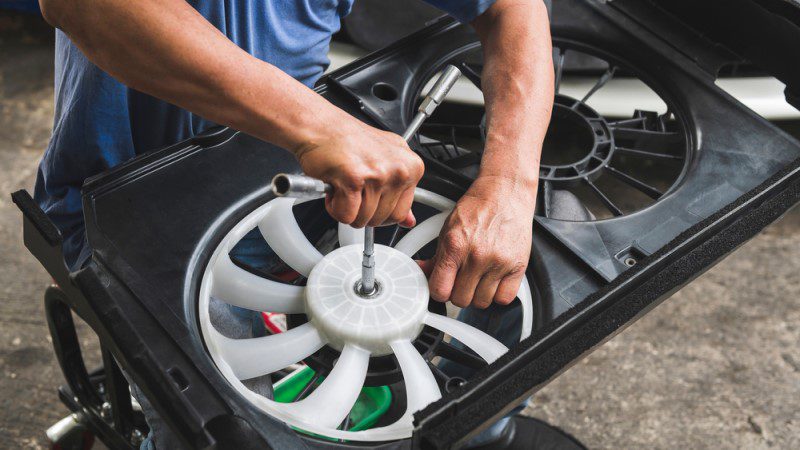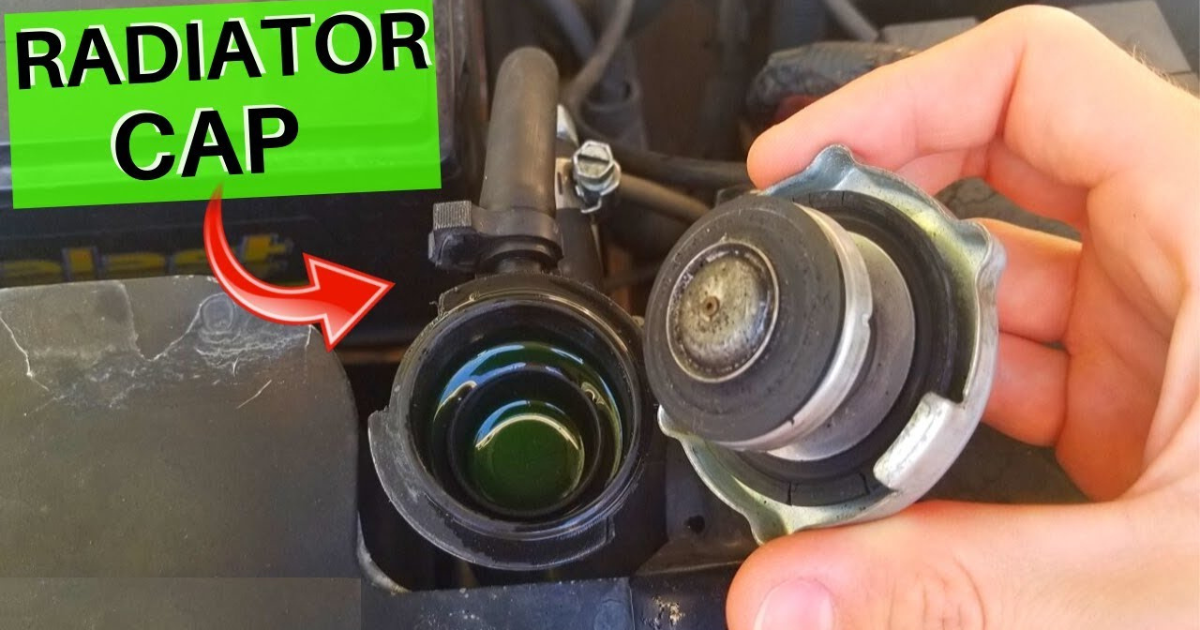Almost every vehicle you see on the road has a radiator. An integral part of every vehicle’s cooling system, the radiator fan dissipates excess heat from the radiator fins, allowing the engine to maintain a consistent operating temperature.
Engine damage can occur if the radiator fan is subpar. The engine might overheat, destroying various parts and necessitating expensive repairs.
What Causes the radiator fan not to work when ac is on?

A radiator fan may not turn on even when the air conditioner is turned on if certain requirements are not met. Whatever the case may be, keep in mind that the fan is completely broken if it doesn’t blow air when the air conditioner is turned on and off.
Is it necessary for the radiator fan to activate when the air conditioner is running? It is expected that the radiator fan will begin to operate upon turning on the air conditioning system.
Many things can stop the radiator fan from turning on or off when the air conditioner is turned on or off in a car. Some of them include a blown fuse, a defective temperature switch, a frayed wiring harness, a blown relay, or low coolant temperature. If the fan turns on occasionally but not when the air conditioner is running, it could be the problem.
A blown fuse
Fuses act as a shield on electrical and electronic components. By this, they protect corresponding components from damage due to electric bridges or surges.

Here’s how they work, if there’s any current surge that may damage a crucial electrical component, the metal strip on the corresponding fuse will cut and prevent the power from transmitting to the key component. When the metal strip on the fuse is broken, it is referred to as a blown fuse.
Bad temperature coolant sensor
The powertrain control module is often responsible for controlling the radiator fan on most vehicles, however on others, separate modules are responsible for turning the fan on and off.
A temperature sensor from either vendor can detect when the coolant is getting too hot and relay that information to either the PCM or an external module. In the event that this sensor is faulty, the engine control unit will be unaware of when the coolant is becoming too hot. Consequently, the radiator fan will not turn on at the appropriate time.
No or low coolant
Having little coolant in the reservoir is likely the cause of a non-functioning radiator fan that is not overheating. The reason behind this is because car temperature sensors aren’t designed to detect engine heat. The engine coolant’s heat is instead used to determine the temperature.
If the coolant level is too high, air will fill the reservoir and fool the temperature sensor into thinking it’s higher than it actually is. If the radiator fan is still not blowing air even when the air conditioner is turned on, this is one of the first or second things you should examine.
Blown relay
Most car manufacturers use a relay to control the radiator fan since it uses a lot of power from the vehicle’s electric flow. On the other hand, faulty relays might cut power to the relevant parts.
You can find the cooling fan relay fuse in the engine compartment, either in the main fuse box or in a separate box nearby. To find the location of the relay and check it, refer to your owner’s manual first.
The bad fan controller module
Restated earlier, a number of manufacturers incorporate cooling fan control modules into their vehicles. The engine bay is where you’ll find this part. Depending on its precise placement in your car, the module could fail as a result of heat from the engine compartment, rust, or dust.
Broken radiator fan
It is possible that the fan is at fault when the air conditioner is turned on but the cooling fan does not activate. The spinning motion of the cooling fans is controlled by an electric motor located inside.
The fan blades will not rotate if the motor stops working. You should test both radiator fans if you find that only one is functioning. The electric motor can be in poor condition or there could be a problem with the line’s wiring.
Bad wiring connections
When the engine gets hot yet the cooling fan still doesn’t turn on, it could be due to faulty wiring or connections.
Bad AC high-pressure sensor
The underlying functioning principles of vehicles vary across manufacturers. For instance, a faulty expansion valve on the high-pressure line is likely to blame if your cooling fan stops functioning, particularly when the air conditioner is on.
Although it might not be feasible on other vehicles, I have encountered this issue on a 2003 Dodge Caravan SE. I was called upon by a customer to repair the air conditioning system in their Dodge Caravan. After the repair was done, everything was operational again, but the electric fan still wouldn’t turn on. I proceeded to inspect the fan, as well as the voltage and relay. No power and no relay, yet the fan appears to be working.
I removed the high-pressure sensor and gave it a good cleaning after jogging back and forth for a while; that fixed it. Therefore, check the AC high-pressure sensor if you’re experiencing this issue. This can be the reason your air conditioner’s cooling fan isn’t turning on.
Conclusion
To keep the engine and air conditioner from getting too hot, a cooling fan or radiator is necessary. They keep the engine at the right temperature so it can run smoothly. But if they break, the engine could get too hot.
You certainly hope this doesn’t come to pass. If your radiator fan isn’t turning on when the air conditioner is turned on, we’ve got you covered. To find and correct the offender, follow the methods provided above. And lastly, get in touch with your mechanic to provide suggestions if you’re not certain in your instincts.




